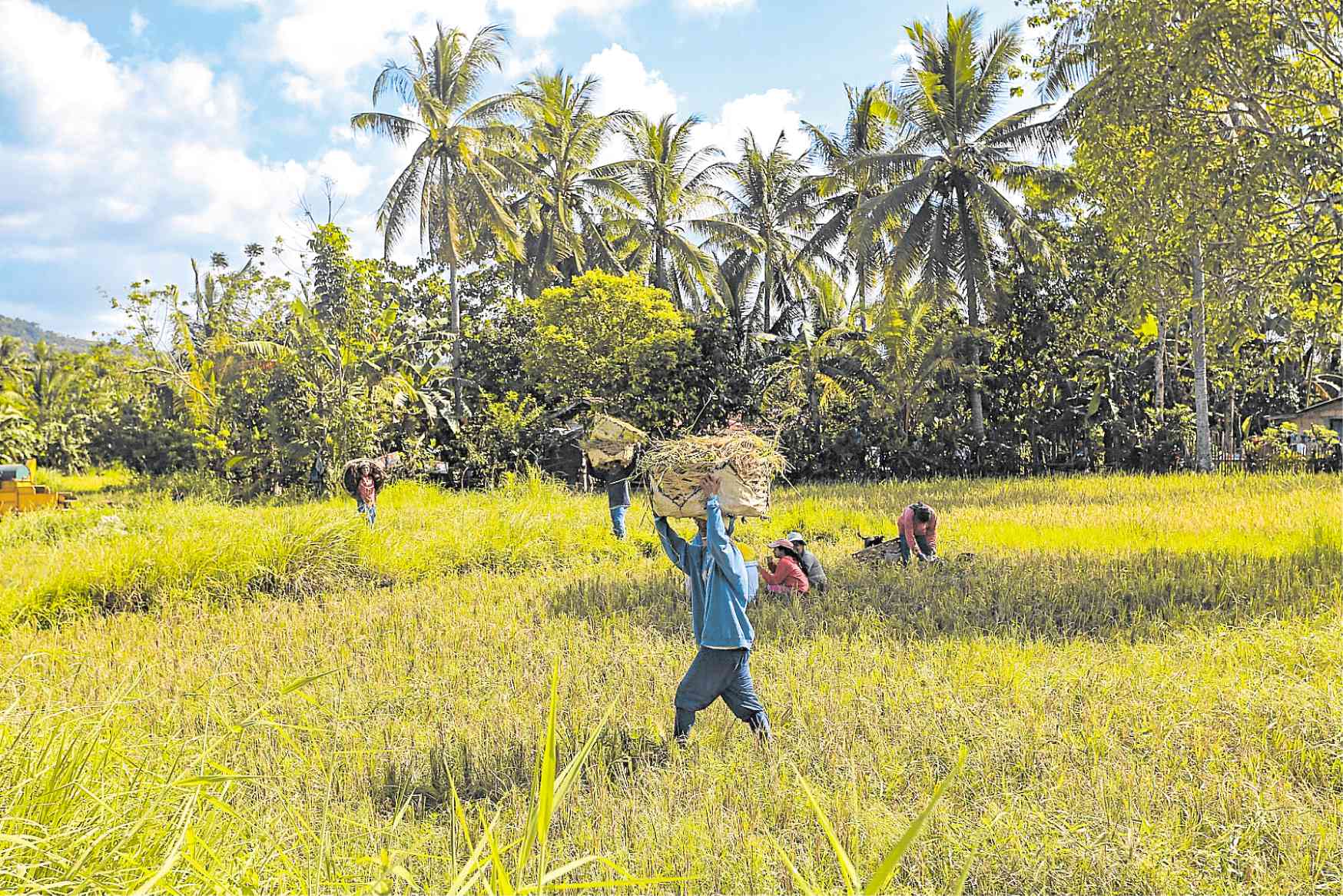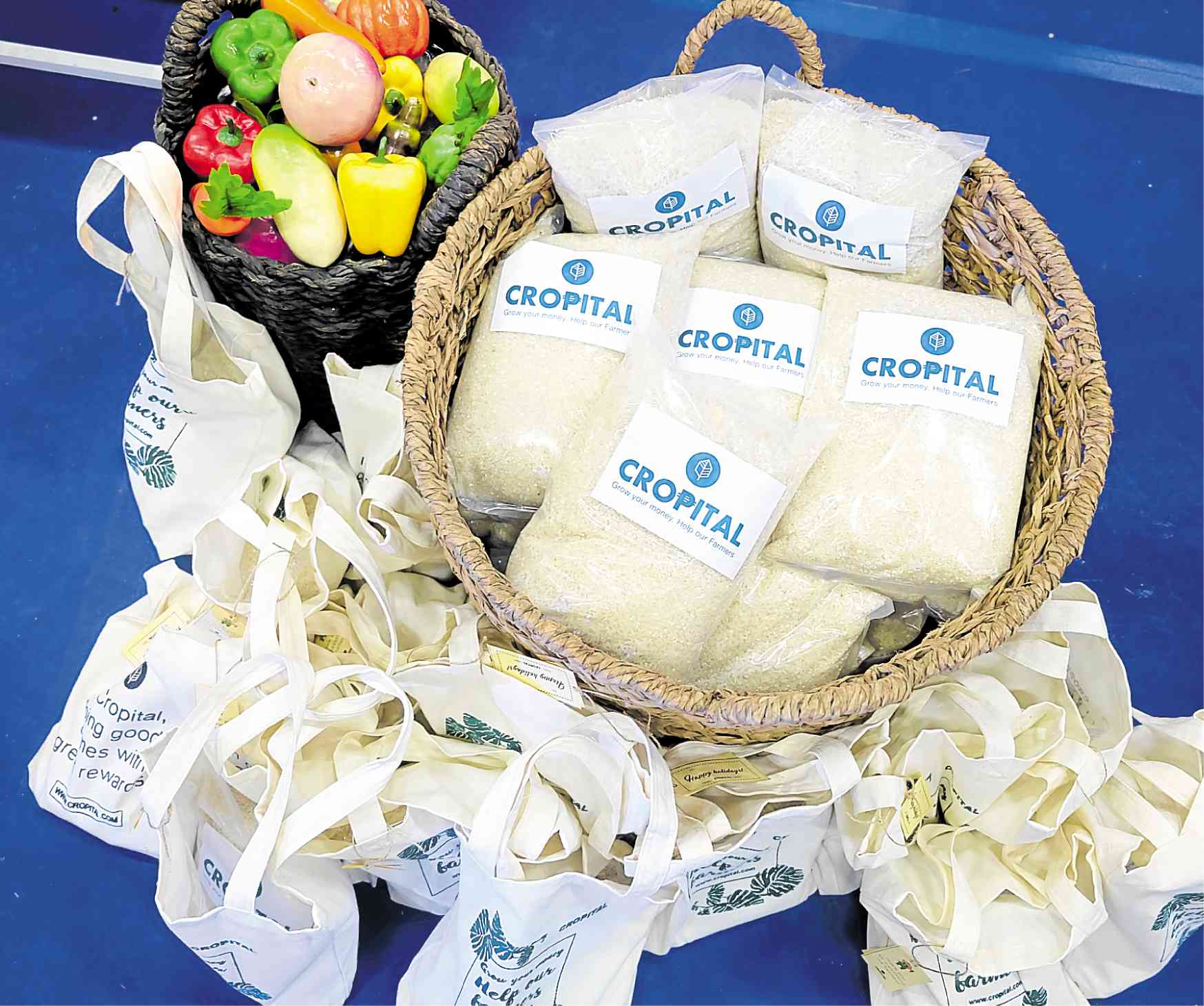Cropital finds fertile ground among investors with a heart
Ruel Amparo knows firsthand the hardships that come with farming, being the grandchild of two farmers with a 1.5-hectare rice farm in Bulacan.
Growing up, he saw how smallholder farmers largely depended on loan sharks, agricultural stores, and well-off members of the community for capital that unfortunately came with rates that could go as high as 20 percent a month.
This unchecked practice has put far too many farmers in a vicious cycle of oppressive debt, which did not sit well with the 26-year-old.
“I started wondering, why is it a standard part of the process of farming to outsource money for capital, and often to informal lenders where the interests are so high? It’s this exposure to how rice farming is being done that made me think,” Amparo said.
The desire to help farmers get out of the cycle of heavy debt prompted him and two partners to establish the online crowdfunding platform Cropital.
Founded in 2015, the social enterprise has been providing farmers access to affordable credit by becoming the prudent middleman between farmers on the ground and investors online.
It basically matches funds from interested investors with the farmers who need the money for the duration of the cropping season, from planting to harvest, which can run from three to six months.
The Cropital team does all the so-called dirty work by being present on the ground and explaining to farmers the new way of getting capital, while providing investors an avenue to directly help farmers who put food on the market’s table.
Since its founding, the site has already helped 700 farmers in seven provinces in Luzon and Visayas and has activated 3,000 investor accounts.
Seeing its growing impact, Amparo and his team are now looking to expand the company’s footprint and triple the number of its active investors—most of whom are millennials and overseas Filipino workers who want to put their money to good use.
“This year, we’ve put in a lot of investments. Right now we’re eyeing to reach 3,000 farmers by June of next year. For investors, we have around 46,000 registered on the website but we’ve only activated 3,000, so we want to increase that,” Amparo said.
Under Cropital’s setup, an individual can invest a minimum of P5,000 and a high of P25,000 in a farm, depending on the farm’s specific needs.
Investors earn a 3.5-percent interest on the money lent through the site.
If all goes well, a P10,000-investment will turn to P10,350 after the crop cycle of four to six months, at which point the farmer is supposed to pay back the loan.
This beneficial partnership has already resulted in a number of success stories, from a farmer who has stopped requesting for loans because he has enough personal earnings for the next planting season to another farmer whose loan requirement grew because he was expanding his farm.
Aside from providing loans, Cropital also links farmers to the Philippine Crop Insurance Corp., shares new farming practices, and finds markets for their crops, mainly palay and corn.
Given the dire need of farmers, many of whom are suffering from multiyear-low prices of palay, Cropital is faced with the challenge to quickly expand a financing platform in the agriculture industry that is fraught with risks.
“There are a lot of challenges. One thing is really the access to the markets. There is also a need to educate farmers that they can get insurance from the government because not everyone gets access to it and right now, weather is getting more erratic. Farmers also need to be informed of the latest technology out there, like where to get more resilient seeds and what type of seeds they could actually opt to or how much fertilizer should they use and so on,” Amparo shared.
Cropital takes the time to clearly inform investors of these challenges faced by the farmers and the risks that come with agriculture, such as erratic weather.
Investors are told that the platform was built not on the premise of high returns but on the movement that it is trying to represent.
“We need people who are empathetic with the situation of our farmers and with the uncertainties that are also involved … I always tell people that you’re not going to be rich by investing or lending using our platform. The mind-set is really to give support, rather than to be big,” Amparo said.
Cropital bridges the gap between those who do not have access to financial resources and those who are looking for an opportunity to grow their money judiciously.
“There are a lot of problems in our society that need to be solved and we need more champions of innovation to find new solutions to these old-age problems,” Amparo said. “The money you’ll put in may be small for you, but for these people, you’re changing their lives.”


